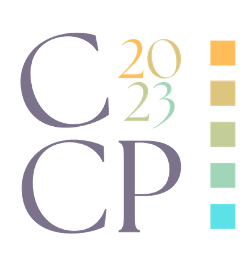
why so serious?
rethinking dire words
shannon pagdon
I have heard the term “serious mental illness” often over the past ten years. I was diagnosed with schizophrenia when I was about seventeen years old, during what I would say are formative years of personhood – that is, when you find who you are as an individual and contemplate directions your life can take. It took me a number of years to truly understand how I felt about my experiences and the terminology of serious mental illness. At first, naming it gave me a sense of meaning and an awareness that I knew what was happening. The nightmares, anxiety, depression, voices, visuals, and extreme paranoia I was dealing with was classifiable, treatable. And yet, the information I found online about schizophrenia was accompanied by a deep sense of resignation. My doctors told me I would be lucky to be in a relationship, that I should cut school and work from my future plans. My life seemed bleak; after many years of trying different antipsychotic medications, I had not banished the voices I heard, and psychosis became something I had to learn to live with. After losing many of my long time friends, I discovered that disclosing my diagnosis could alarm and dismay my loved ones and colleagues and it was hard to open up. I began to wonder if I had to hide this part of who I am. As an emerging researcher, the stigma of my diagnosis still causes me to hesitate about self disclosure. I ultimately feel that being open about my experiences is better all around for me, but the choice was a difficult one. Language shapes the way we think, and so it is always best to reflect and be mindful about the words we use. Even so, words do not always have the impact we intend. In writing this post, I aim to provide a space for introspection around these labels in the hope that this may create change for others in my position moving forward.
So-called serious mental illnesses are framed in an overwhelmingly negative light, even relative to other mental health diagnoses. Concerningly, the use of outdated and dehumanizing terms perpetuates these long-standing stigmas. Psychosis is a poignant example, with symptoms named in largely unfavorable perception. Terms such as “negative symptoms” have the potential to cause deep harm. Since so many psychosis services prioritize early intervention, service users internalize much of the language given to us in those spaces. If we are told by experts our lives will be hollow shells of our previous hopes and dreams, how do you start believing something different? Some descriptors are used as a rationale for forced treatment of people with mental illness, citing claims they suffer “lack of insight” or are “non-compliant to medication.” The very labels applied to our experiences thus undermine our choices in treatment and bodily autonomy. One such instance is the term ‘functioning’ which is often a determinant of many aspects of treatment. Yet how providers define “functionality” varies wildly. For example, if an individual appears unkempt or doesn’t feel comfortable speaking, those things could be classified as “low functioning.” It can be demeaning and stigmatizing to have the standard for your recovery set by others, especially when that bar remains so low. Generalizing terms like “low functioning” ignore context relevant to understanding exactly how particular phenomena affect behavior. For example, having hallucinations in the shower may impact someone wanting to practice regular hygiene. Labeling terms have a deep impact on the lives of individuals and arguably, need a full understanding of personal circumstance to be used meaningfully.
The idea of “madness” is a scary one- many different mediums of thought reinforce this idea in micro and macro ways. The mind is the frame from which we see our world and reality, imagining any disconnection between the self and the mind is challenging to conceptualize and can be harder still to truly achieve. Before my own psychosis, I would say I was largely desensitized to depictions in pop culture, such as each time a movie has lines like “they’re losing their mind,” “we should lock them up,” or “they’re acting crazy.” Now that I identify with the party being referred to, I cannot help but notice how frequent this is in music, movies, books, or animation of almost any genre. Furthermore, madness in many contexts is personified directly by the media, and such characters are often made villainous by their experiences of psychosis. Ideas of “mad and bad” characters (Gollum, the Joker, and Daenerys Targaryen to name some) are entrenched across genres and so a part of the media that it is often overlooked and disregarded as problematic. These distorted versions of phenomena detract from real and meaningful narratives of these experiences, and instead characterize experiences of madness as extreme, violent, over the top caricatures. They additionally, in the case of schizophrenia, often reinforce the common misunderstanding that schizophrenia is the same thing as dissociative identity disorder, which does a disservice to both. The conflation of schizophrenia and dissociative identity disorder likely stems from the root “schizo” meaning “divided or split” hence schizophrenia was deemed to be “a splitting of the mind” in terms of psychological processes (Eugen Bleuler coined the term schizophrenia is 1908, replacing the previously used, “Dementia Praecox”). In the United States, I notice that with high levels of gun violence comes blaming the mentally ill, especially those who are not in touch with consensus reality, which furthers these ideas of fear and confusion around madness. Such communication provides a good example of the impediments to normalizing dialogues about mad experiences.
The term serious mental illness (SMI) implies a false dichotomy between some diagnoses and others; that some are deemed inherently “serious” wrongly implies that others are inherently “not serious.” The issue with this disjunction is that it oversimplifies by disregarding descriptive nuance in favor of a catch-all term. Applying the label “serious” implies a prejudice, a prejudgment of severity, disruptiveness, or distress which anchors the frame to an escalated level. The word “serious” suggests that the person’s situation is dire or hopeless. This can be further perpetuated by the use of other stigmatizing vernacular language such as “crazy” or “insane.” This type of language only amplifies the stigma surrounding mental health and makes it more difficult for individuals to seek help and support. Rather, we should employ phrases that focus on the individual’s experiences and the support they are seeking, which is a more empowering and positive approach. This is especially important with the increase of early intervention psychosis programs, which contradict the flawed axiom that individuals with “serious” mental illness are going to live difficult lives; like any other condition of the mind, there are options for treatment, recovery, and adapting to improve quality of life. All mental health is a spectrum of experience. Just as psychosis can be a singular or sporadic event, depression can be recurring and debilitating throughout one’s life, and neither should be approached with categorical labels like mild or severe. That is to say, the same diagnostic label does not inform the variation between individual experiences. Some terms with dire connotations can stymie otherwise positive recovery trajectories for service users, so it is best practice to use language that accurately describes their experiences and outlook.
As an expression, serious mental illness can also be problematic because it can limit access to services and resources for people with mental ill health. Insurance companies and healthcare systems, for example, can use SMI as eligibility criteria for certain treatment or entering specific programs. This can either exclude individuals with less “severe” diagnoses or those who do not meet the criteria for SMI from accessing care. This creates a two-tiered system of care that reinforces inequalities, encoding that some qualities of mental health conditions are more deserving of care and resources than others. Further, SMI being used in this way puts a primary focus on symptoms and diagnoses, rather than on crucial social and environmental factors that contribute to ill mental health. This approach can obscure the complex interplay between individual experiences, social determinants of health, and systemic barriers to care. It can also reinforce a biomedical model of mental health that privileges medical interventions over social and more community based approaches.
All this said, I do not want to, in any context, assume my perspective must resonate with anyone who has or is currently experiencing psychosis, or who is interested in mindful language. I did not resonate with, and felt shamed and harmed by dire words, but I know others may find them helpful and beneficial. I simply advocate for opening language to allow alternative experiences and make space for everyone to speak freely. Language always evolves over time. Whether it is through diagnostic criteria, slang, or colloquialism, humans shift terms to better suit their needs with each generation. Personally, I like to believe that this trend will eventually replace or supplement some outdated and imprecise terms like serious mental illness. This is a collective effort, not limited to individual self expression; it is about how society frames internal experience. Openness to more nuanced first person narratives of experience helps replace stigmatizing labels and benefits everyone by inviting open, honest, and transparent conversation. Removing “serious” does not imply that psychosis spectrum experiences are not immensely challenging or free of struggle for individuals experiencing it. It simply widens the lens from which individuals are allowed to view their own experiences, and enables mental phenomena to be contextualized by first person accounts.
References
Berent I, Theodore RM, Valencia E. Autism attenuates the perception of the mind-body divide. Proc Natl Acad Sci U S A. 2022 Dec 6;119(49):e2211628119. doi: 10.1073/pnas.2211628119. Epub 2022 Nov 30. PMID: 36449541; PMCID: PMC9894215.
Bleuler, E. (1950). Dementia praecox or the group of schizophrenias. International Universities Press.
Brown, M., Pagdon, S. & Jones, N. (editors). 2022. Rethink Negative Symptoms. V. 1. accessible at www.rethinkpsychosis.weebly.com
Forstmann, M., & Burgmer, P. (2015). Adults are intuitive mind-body dualists. Journal of Experimental Psychology: General, 144, 222-235. doi:10.1037/xge0000045
Hacking, Ian. “Ian Hacking · Making up People: Clinical Classifications · LRB 17 August 2006.” London Review of Books, London Review of Books, 7 Nov. 2019, https://www.lrb.co.uk/the-paper/v28/n16/ian-hacking/making-up-people.
Pagdon, S., & Jones, N. (2022). Psychosis Outside the Box: A user-led project to amplify the diversity and richness of experiences described as psychosis. Psychiatric Services.Pinker, S. (2014). The sense of style: the thinking person’s guide to writing in the 21st century. New York, New York, Viking.

Shannon Pagdon is a clinical research coordinator and nationally certified peer specialist living with psychosis. Shannon has worked as a research assistant with the EPINET project and with the University of Pittsburgh. Shannon is the co-creator of Psychosis Outside the Box and was recently elected as the IEPA’s Vice President of Lived Experience Research. In her spare time, Shannon enjoys reading, baking, hiking, and spending time with her dog, Scout. You can follow Shannon on Twitter @SPagdon.
